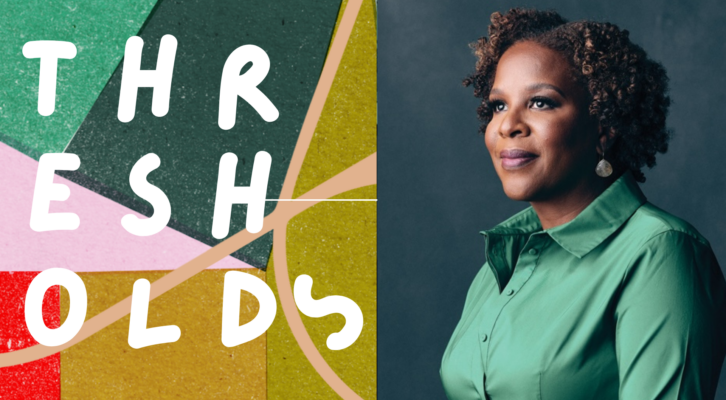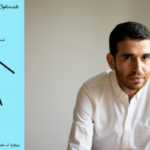My second thriller started to form because of a photograph that chilled my blood. The now-famous image was of activist Angela Peoples at the Women’s March on Washington. With three white women in their pink knit hats taking selfies behind her, Peoples held a sign that continues to haunt me: “Don’t Forget White Women Voted for Trump.”
Even being from a small town in a red state, I struggled with why. The answer I kept coming back to was we (white women) wanted a white man to protect our privilege. For anyone who’s been on the receiving end of a white woman defending a white man behaving badly, this shouldn’t be much of a surprise.
But the image stayed with me when I sat down to write my second thriller, For the Best. I couldn’t explore another white woman striding into the police station demanding answers or snooping in her neighbor’s bushes for clues. That’s not an insult to thriller writers, in fact, those things actually happened in my debut, Little Voices.
But even in early 2019, it felt like such privilege. There was no way I could ignore how white women were acting in the wake of our election. Or, the privilege in my own life or mistakes I’d made.
I’ve recently been in conversations with thriller authors where I’ve heard the phrase “books shouldn’t be political.” Even when I push back, they insist that’s “not our job.” I could not disagree more.
As crime fiction writers, we deal with life and death and justice at every twist and turn. Our thrillers may be “ripped from the headlines,” but the best of us explores the institutions, the privilege, and the power dynamics that let crimes happen again and again.
For me, it was Angela Peoples and the terrible truth of her sign that led me to write about a white woman using a system of privilege to protect herself, even from an accusation of murder. For Layne Fargo in her second book, They Never Learn, she came up with the idea of a female serial killer who hunts abusive men, while watching Brett Kavanaugh’s Supreme Court confirmation hearing.
“I was vibrating with rage, because I knew—I just knew—the guy would get away with it,” Fargo explained. “I channeled that all-consuming anger into a story where men like that are stripped of their power, where they get exactly what they deserve. Otherwise, it might have eaten me alive.”
Erica Katz explored American corporate culture and its treatment of women, people of color, and LGBTQ folk in her novel, The Boys’ Club. She explained that the conscious effort to remove racial and socio-economic status is itself a political statement of the author’s point of view of how things should be.
“Novels are written to be read, and I think it is misguided to believe words can be consumed without a reader framing them in the context of politics these days,” said Katz. “I figure, if ‘getting political’ is unavoidable, one might as well embrace it.”
That’s another question for me, which is how do you take out politics and political issues? Or rather, incorporate them into our fiction without being preachy at the expense of story.
Silvia Moreno-Garcia, who addresses culture and identity across genres from her bestselling novel Mexican Gothic to her Nebula Award finalist Gods of Jade and Shadow, said she believes that a writer’s subconscious “seeps into their books.”
“It’s not that I say, ‘now it’s time to talk about colonialism or women’s issues,’ it naturally happens,” said Moreno-Garcia. “It is baked into the story and hopefully it’s like a tasty pain au chocolat, where it’s neatly folded into the dough.”
That folding into a story can feel like a child with playdough or a Michelin chef, depending on how an author approaches the story. Even for those who are careful with their work, it can still be scary to be honest about how you see the world.
“I anticipate many people criticizing various aspects of my book,” said Katz, “But I hope they then talk to other readers about how things should have been different—and I believe that to be the first step toward change.”
For Rachel Howzell Hall, who wrote about domestic abuse in her upcoming thriller, And Now She’s Gone, “politics affect the economics of families burdened with abuse.” She explained many women must stay in an abusive relationship because they’re ill and rely on their partners health insure. Maybe a woman can’t afford to leave, or perhaps she’ pregnant and the risk too great.
“All of this—social programs, economics, healthcare, children, race relations—is shaped by politics,” said Hall. “And if you’re writing about a crime story, I don’t know how you can’t be political.”
Fargo said she believes the revenge thriller is having a moment right because we’re constantly seeing flagrant real-world injustice go unpunished. “Crime fiction gives us a space to imagine a world where if we can’t have justice, at least we can get revenge,” she said. “Indulging in these revenge fantasies might not change anything, but it sure is satisfying.”
***


















